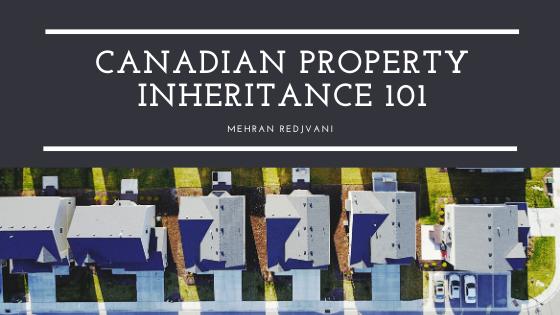While it can be a generous gift from a family member, inheriting a house kicks off a process that can be lengthy, stressful, and confusing. To take the next steps to acquire the property, it’s best to know your options, assess the financial consequences, and hire an expert to assist in navigating the tax and legal requirements.
Since inheriting real estate and other assets is on the rise, many Canadians are figuring out capital gains taxes on their newly inherited properties. While there is no Canadian inheritance tax on properties, there are often situations where taxes might be owed.
Canadian Inheritance Taxes
Inherited properties are considered nontaxable. If a property is left to a family member, they will not have to pay a tax for taking over the ownership and care of the property. The only time capital gains tax is enforced is when a secondary home, such as a vacation home, is inherited. Commercial properties also fall under this umbrella.
Capital Gains on Inherited Properties
While calculating capital gains is relatively simple, many people do not realize that if they sell the property they inherit, they will pay capital gains tax. Capital gains tax is the amount of money an individual must pay when they sell the property they inherit.
The following are just four of the situations that are most common when it comes to property inheritance and capital gains:
-
- When the primary residence is sold, capital gains are not taxable. When the property is passed through inheritance and is the primary residence, there is no capital gains tax.
- When selling inherited properties, the individual is liable for tax on up to 50 percent of the capital gain.
- Secondary residences are eligible for capital gains tax.
- Commercial properties are eligible for capital gains tax.
Traditional capital gains are calculated by subtracting the fair market value at the time the property was purchased from the current sale price. When a property is inherited, the new owner may not know the purchase price meaning the value could be calculated from the time the inheritance took place.
Figuring Out Capital Gains on Inherited Properties
The following steps should be considered when inheriting a property.
Appraisal and Record-Keeping
When inheriting a property, whether it will be sold or not, the property should be appraised to find out the market value of it. This information will be useful when it comes time to sell or gift the property to another family member. Never skip the appraisal because property values are always changing. It can also save extra work at a later date.
Pay Taxes if Acquiring a Secondary Property
As stated above, any secondary property that is inherited is considered to be taxable. The tax will be figured out based on the value of the property when it was first purchased and what it is currently worth. If the individual inheriting the property can not afford the payment or chooses not to pay the tax, it will be deducted from the original owners’ estate.
Plan for the Future
The future of an estate can make the process more straightforward for any benefactors. Keep updated and organized appraisals of all properties regardless of the type. If the property will be sold or left to someone in a will, the documents should all be in order to ensure a clear record of taxation requirements at a later date.
Canadian capital gains tax on inherited properties can be a complicated process. If you are inheriting a property and are not sure of the next steps, contact an experienced property management company or realtor that can help you through the process.
Mehran Redjvani is a realtor located in the Toronto suburbs. For more information, please contact him at (647) 206-8564.

